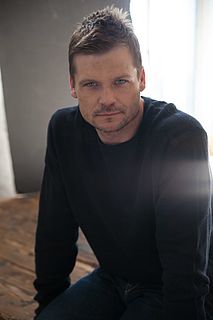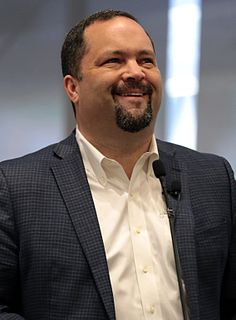A Quote by Michael Emerson
There are three things, and it depends on the group that we're talking about, but there's history, there's culture, and then there's social networks. So, you know, historically black and white, they worship together until about the end of slavery, and people started moving out into separate churches. But it was because of discrimination and racism and such that blacks began to establish their own denominations and their own churches.
Quote Topics
About
Because
Began
Black
Black And White
Blacks
Churches
Culture
Denominations
Depends
Discrimination
Discrimination And Racism
End
Establish
Group
Historically
History
Know
Moving
Moving Out
Networks
Out
Own
People
Racism
Separate
Slavery
Social
Social Network
Social Networks
Started
Talking
Then
Things
Three
Three Things
Together
Until
White
Worship
Related Quotes
So we didn't get the denominations and the separate congregations really till about into Civil War time. What's happened then, of course, is now that we've had well over 100 years of this history to establish separate cultures, different ways of worshipping, and different ways of understanding theology so that when people try to come together makes it very difficult. And then, of course, social networks, you know, how do we find a place to worship?
There is not a history of black intellectuals being allied with dominant forces to hold white people in social and cultural subordination for a few centuries. Second, the "our" of black folk has always been far more inclusive that the "our" of white folk. For instance, there would have hardly been a need for "black" churches if "white" churches had meant their "our" for everybody - and not just white folk. But "our" black churches have always been open to all who would join. The same with white society at every level.
It happens a little bit more in the West, where there's more fluid - where everybody's originally from somewhere else. So they have a little bit more permission to do it. It happens the least, at the individual level at least, in the South, because the South has very strong, you know, set up black churches and white churches and a long history of that, and so it's a bigger social cost.
The true story is that black people need to tell their history. Very few films are made by black people about slavery. That itself is a crime because slavery is a very important historical event that has held our people hostage. Forget white people's role in it. In the end what's important is black people remain and live with the scars and psychological issues.
There could be no more powerful argument against mixing religion and government than the success of independent African American churches in placing racial segregation and discrimination on a reluctant nation's social agenda. Would black churches have been able to take the lead in the struggle had they been dependent on funds doled out for 'faith-based initiatives' . . . ?
Black History is enjoying the life of our ancestors who paved the way for every African-American. No matter what color you are, the history of Blacks affected everyone; that's why we should cherish and respect Black history. Black history changed America and is continuing to change and shape our country. Black history is about everyone coming together to better themselves and America. Black history is being comfortable in your own skin no matter what color you are. Black history makes me proud of where I came from and where I am going in life.
I went to church as a kid, but it was as much a social thing as anything going to the youth group with the other kids and whatnot. It wasn't until I got out of college that I got on my own religious trip and started finding other things out there as well as philosophies. I've kinda been on my own spiritual path since then.
This film isn't about "white racism", or racism at all. DEAR WHITE PEOPLE is about identity. It's about the difference between how the mass culture responds to a person because of their race and who they understand themselves to truly be. And this societal conflict appears to be one that many share.































